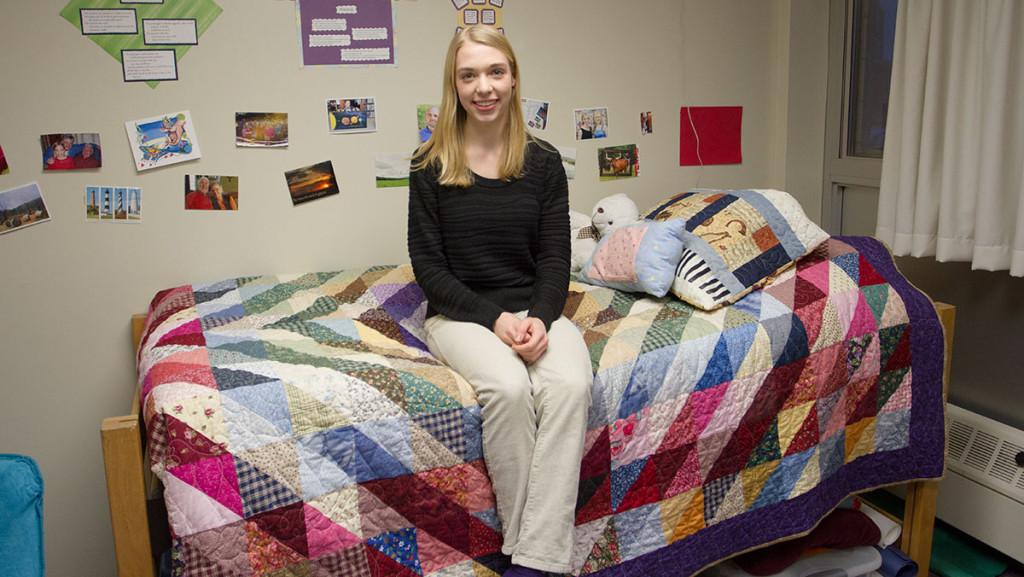Beginning in Fall 2015, the Office of Residential Life will be introducing a new Residential Learning Community on campus in an attempt to provide an educational experience for students where they can learn from each other’s religious beliefs and begin conversations on religion and faith.
The Interfaith community will be located on the second floor of Terrace 5 and is open to all upper-year students on campus. Applications for the RLC are now open and close at 11:59 p.m. March 17, followed by housing selection for all RLCs on March 24.
Sophomore Marci Rose said students from all faiths, and even those who do not identify with a particular faith, are invited to live in this community, which will provide a series of events surrounding the exploration of the different religions represented on campus.
Rose, a current member of the Interfaith Council on campus and the future resident assistant of the new RLC, put together the entire proposal for this new community with the help of some work done by Interfaith Council members previously.
In the past few semesters, senior Celina Foran worked on the project with other members of the Interfaith Council to draft a mission statement and programming goals.
Bonnie Prunty, director of residential life and judicial affairs and assistant dean for First-Year Experiences, said student-proposed educational communities are nothing new. The currently offered Outdoor Adventure Learning Community and Sustainably Conscious Living communities were initially proposed by students as well. She said, however, it is not easy to predict the interest for any new community.
“The last new RLC that we offered was in the 2010–11 academic year, and it was an LGBT community,” Prunty said. “However, due to low interest after one year, we stopped it. It is disappointing when students bring in good ideas for new RLCs but do not want to live in them themselves. However, the Interfaith community has members committed to living there.”
Jacqueline Robilotta, assistant director of residential life, said the application for a new learning community is available to everyone through OrgSync and allows students to propose new RLCs.
“This past fall, when Marci came to me with her application, I put it all up on OrgSync so that it is a streamlined form,” she said. “The application has all the guidelines and questions to give a general idea of the process to the students.”
Rose, a representative of the Protestant Community, said the Interfaith Council has students from every religious community on campus and also has members who do not identify with a particular faith. Rose said the council intends to have several events that expose everyone to the different religious beliefs represented.
She said, for example, “This Faith in a Nutshell” is an event where every semester, one religion is given the opportunity to explain to other members some of the aspects of that religion.
Prunty said there is not much added cost to creating a new learning community and if there is little interest for it the following year, the money is reallocated to where it is most needed.
“Advertising and promotion do not cost much at all,” she said. “When a learning community is approved, it only costs a little extra in terms of program money, if, for example, they want to call in a speaker or want to travel.”
Robilotta said she worked with Rose to secure a good location on campus where the community goals could be met and have all the resources needed.
“Marci was part of a lot of the decision-making for the community and did a lot of work,” Robilotta said. “The terraces were more attractive over apartments, which would have cost more to the students.”
Rose said she is looking forward to working in this community and is excited about all the learning opportunities that it will provide.
“I feel like other than Interfaith Council, we do not have many opportunities for students to engage in interfaith dialogue on campus,” she said. “By living in this community, I am hoping to learn a lot, and that is why I am very excited for this community.”









